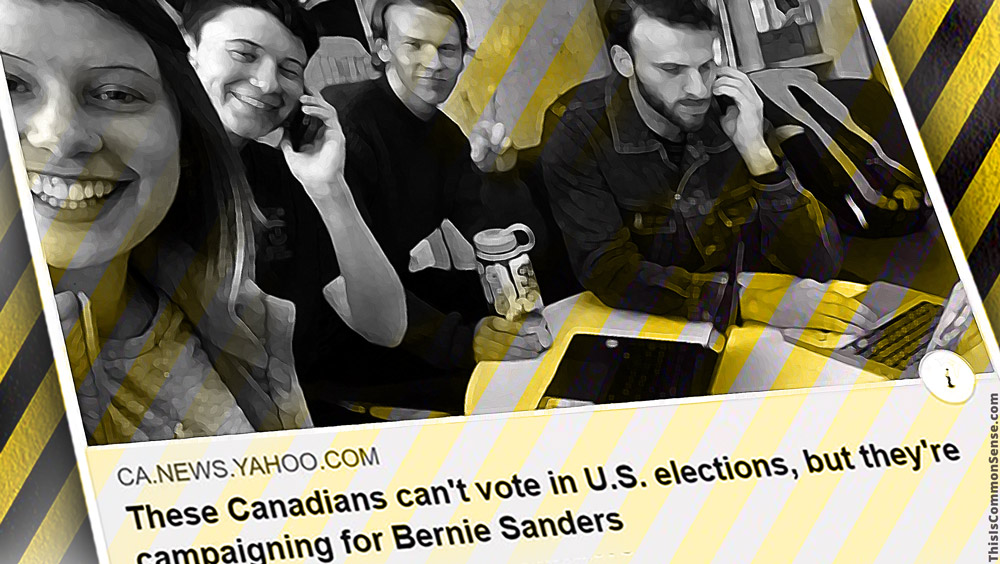When rumor of “Russian interference” in the 2016 presidential election hit the news, my first thought was: electronic/computerized voting machines — they are known to be insecure, easy to rig.
But when it turned out that folks at CNN and MSNBC were hyperventilating about a very clumsy ad campaign on social media, designed to seed discord more than secure an election for any particular candidate, I rolled my eyes.
I also remembered that the Steele Dossier underpinning the whole bizarre “Russia hacked our elections!” investigation was itself an example of foreign state and private actors seeking to “hack our elections.”
Long story short: when we talk about “hacking elections,” we should worry about compromised vote-counting systems, not Facebook ads.
Maybe that’s why when I read “These Canadians can’t vote in U.S. elections, but they’re campaigning for Bernie Sanders” I didn’t panic, I chuckled.
And maybe raised an eyebrow.
My generally ho-hum reaction is the result of my trust in the American people. The voters are in charge, in the end. Sure, young Canadian communists and communitarians and the like cannot vote here, but they sure wish to influence the election.
Interference?
No. Even if they are unwise, and not citizens, let them express their values.
Hey: maybe one reason I am “soft” on “foreign interference in our elections” is that “interfering” in elections is just a nasty way of describing what I do when I petition in Oklahoma or Colorado to help enable citizens to decide an issue, or join a march against totalitarianism in Hong Kong.
The struggle for freedom is worldwide.
Dare to interfere.
This is Common Sense. I’m Paul Jacob.

—
See all recent commentary
(simplified and organized)
